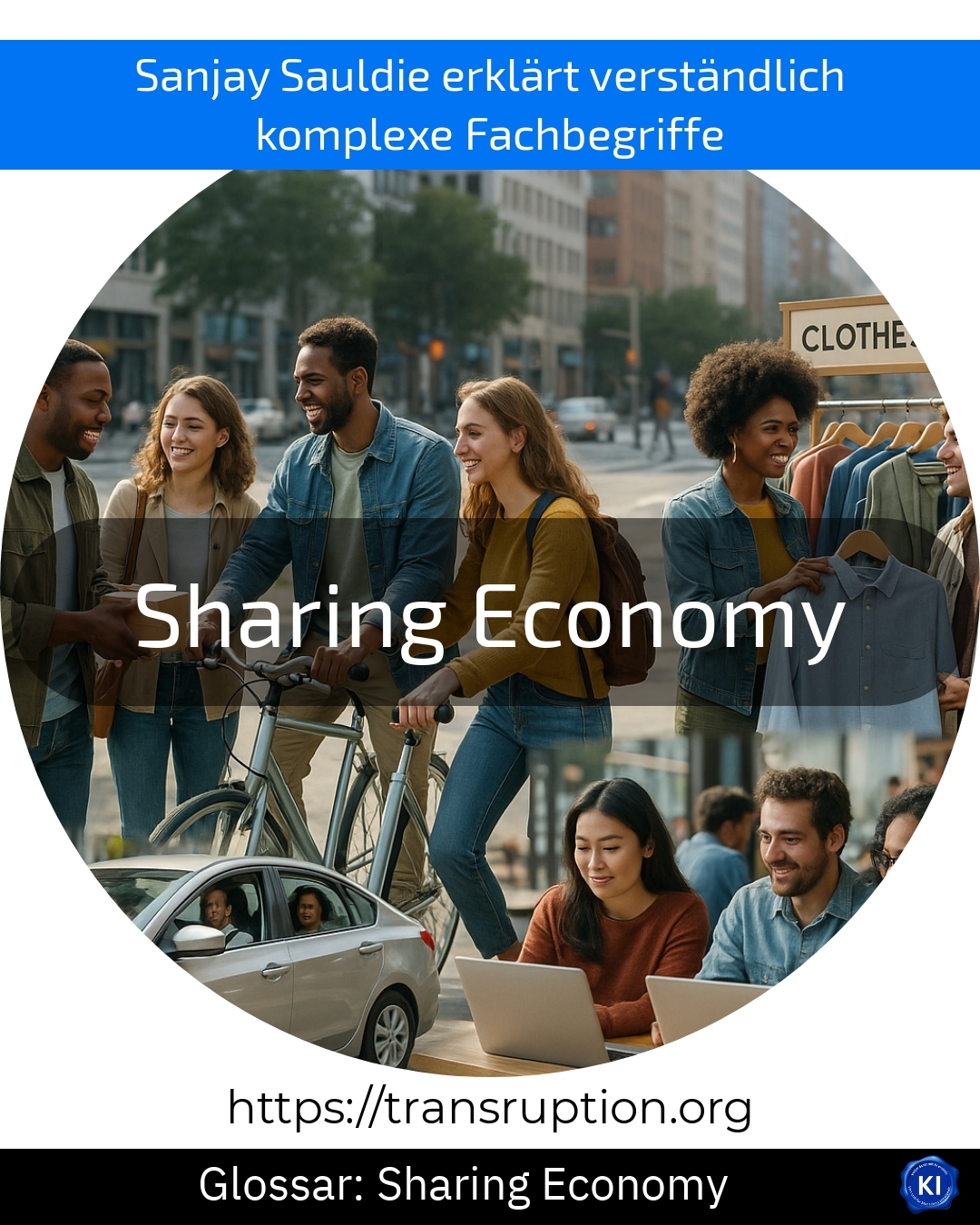The term Sharing Economy is particularly at home in the categories Digital Society, Digital Marketplaces and Sustainability and Environment 4.0.
The sharing economy describes an economic model in which people share things such as cars, flats or tools with each other instead of buying and owning them themselves. This is primarily made possible by digital platforms and apps that connect people and make sharing simple and secure.
One vivid example is car sharing. In the past, anyone who wanted to be mobile had to own their own car. Today, there are platforms on which private individuals can lend their vehicles to others. If you only need a car occasionally, you can borrow it flexibly and only pay for its use. This principle can be applied to many areas of life: flats are shared via platforms such as Airbnb, tools via neighbourhood apps.
The sharing economy makes better use of resources, which reduces the burden on the environment and saves money. At the same time, it creates new opportunities for digital commerce and sustainable business practices. For companies and decision-makers, the sharing economy offers opportunities to develop new business models and respond to changes in consumer behaviour.















